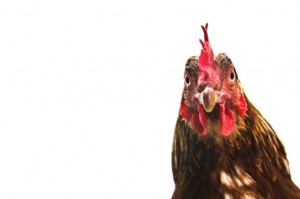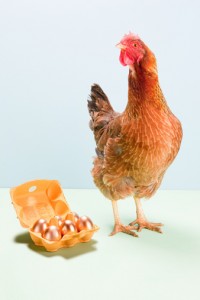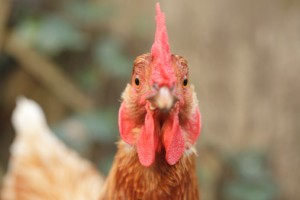 Somebody just stumbled into a chicken-and-egg situation. And I’m not talking about foxes in the henhouse. This is more of the “What came first?” variety. And the answer to that proverbial question has profound implications for your life.
Somebody just stumbled into a chicken-and-egg situation. And I’m not talking about foxes in the henhouse. This is more of the “What came first?” variety. And the answer to that proverbial question has profound implications for your life.
Here’s the back story…
The Bureau of Labor Statistics recently published a report outlining how the average American spends his or her money. Assuming you’re average, you spend a third of your income on housing, 17% on transportation, 13% on food, 11% on insurance, and 7% on healthcare. Entertainment lags back at 5% and the average American gives 4% to churches or charities. Interesting, there was no mention of debt service, at least in the report I read.
Of course, who’s average, right? So Derek Thompson of The Atlantic did some more figuring. He split up income categories into quintiles – the top 20%, the bottom 20%, and the three in the middle. He then compared how the top fifth spend their money proportionally, compared to the bottom fifth.
Would it come as a shock that there is a difference?
Take housing. The poor spend 40% of their money on housing, compared to 30% for the wealthy. The poor spend 16% on food, compared to 11% for the upper fifth.
Know where the biggest difference is? No, not entertainment. No not contributions. The biggest difference between the way the wealthy spend their money and the way the poor do is in insurance and savings. Here’s what Thompson says:
The term consumption takes on a more literal meaning when you see the difference between rich and poor spending. Cash-hungry families consume more of their income immediately, spending two in three dollars on absolute essentials like food and shirts. The rich are more predisposed to spend toward the future, with eight-times more of their income going toward insurance and even more going toward savings (emphasis mine).
So far, so good. But here is Thompson’s conclusion:
The poor don’t plan as much for the coming years, because they can’t afford to…. Thinking about the future is a form of luxury.
Seriously?
Did I read that right?
The poor can’t afford to think about the future because they don’t have enough money to think about the future? And so what you’re saying is if they had more money, they’d be more inclined to save it?
Here’s another take: Maybe the rich are rich because somebody started thinking about the future rather than spending 102% of what they earned.
 Maybe the rich are rich because somebody was willing to work longer, pay themselves first, and (gasp!) sacrifice consumption today in order to have more tomorrow.
Maybe the rich are rich because somebody was willing to work longer, pay themselves first, and (gasp!) sacrifice consumption today in order to have more tomorrow.
Maybe the rich are rich because for a season they were secure enough in who they were that they didn’t feel compelled to spend money they didn’t have to buy crap they couldn’t afford to impress people they didn’t like.
Thompson refers in passing to some research done by scholars Sendhil Mullainathan and Eldar Shafir in their recently-published book Scarcity: Why Having Too Little Means So Much.
One of their conclusions:
When people have very little, they undertake behaviors that maintain or reinforce their future disadvantage. If you have very little, you often behave in such a way so that you’ll have little in the future.
And so the cycle continues. Somebody has nothing (the chicken), which causes them to think and behave (the egg) in such a way that they have nothing in the future (another chicken). But here’s what they also learned from their research that Thompson missed or ignored: Even if you gave them an abundance, their thinking and behaving, left unchanged, will ultimately lead them back to poverty. Not right away, but in a matter of months.
Oh… and one other thing. As I have mentioned (like here) often (like here) before (like here), this isn’t limited to money. The same idea works for time and any other commodity.
Bottom line: you can change your circumstances. But it’s going to require that you change your thinking and doing.
Wow.
What a concept.
 What if you started managing your money proportionately like wealthy people do? You will become wealthier. But you can’t do that and be a ruthless consumer.
What if you started managing your money proportionately like wealthy people do? You will become wealthier. But you can’t do that and be a ruthless consumer.
What if you started managing your time the way that highly effective, productive people do? You will become more productive. But you can’t do that keep whining about how you never have any time.
What if you started engaging in relationships the way that loving, happy, gracious people do? You will have stronger relationships. But you can’t do that and keep holding on to your grudges and gripes.
Poverty and wealth in any domain – money, relationships, time, influence – truly aren’t just states of mind. But in the long haul, they are the result of how you think and the choices you make. Solomon knew that long ago:
The wealth of the wise is their crown, but the folly of fools yields folly (Proverbs 14:24).
So thinking about the future isn’t a luxury, and if you think it is, you’re already sunk. Thinking about the future is a necessity. And it’s a glorious opportunity for somebody who’s courageous enough to do it.
And if you think that’s interesting, just imagine what it would be like to change your thinking and behaving so that you receive treasure that lasts for all eternity.
Now that’s something you can talk about at the chicken house. The eggs are on me.
Related articles






